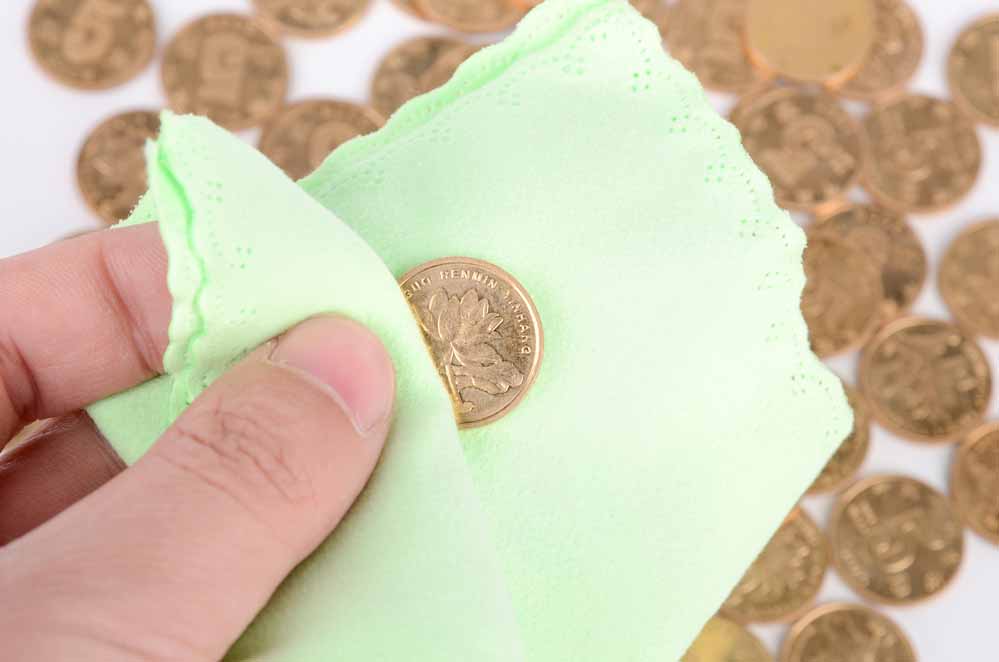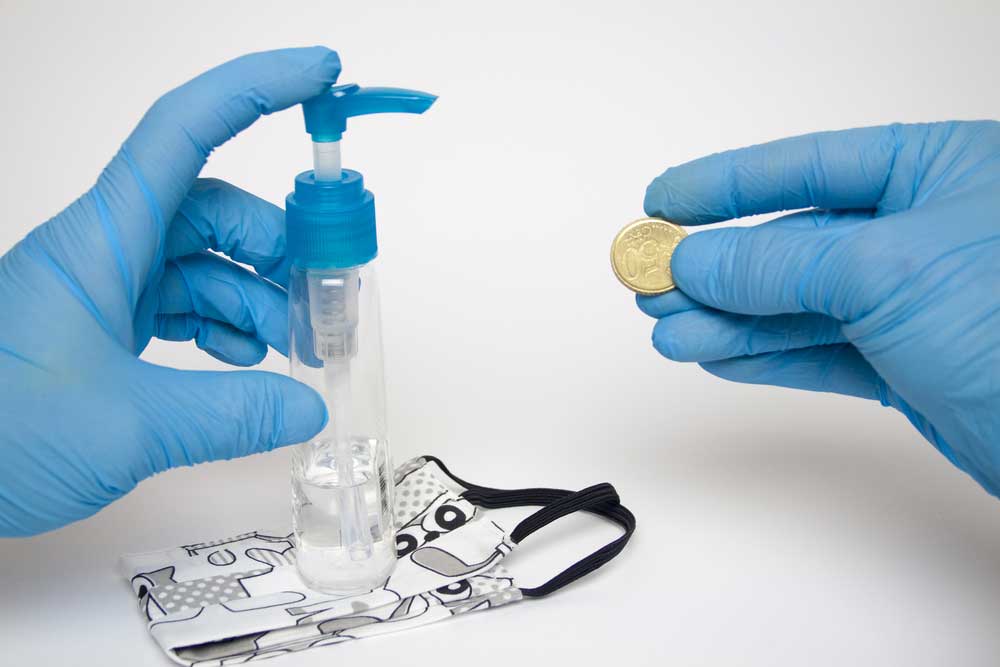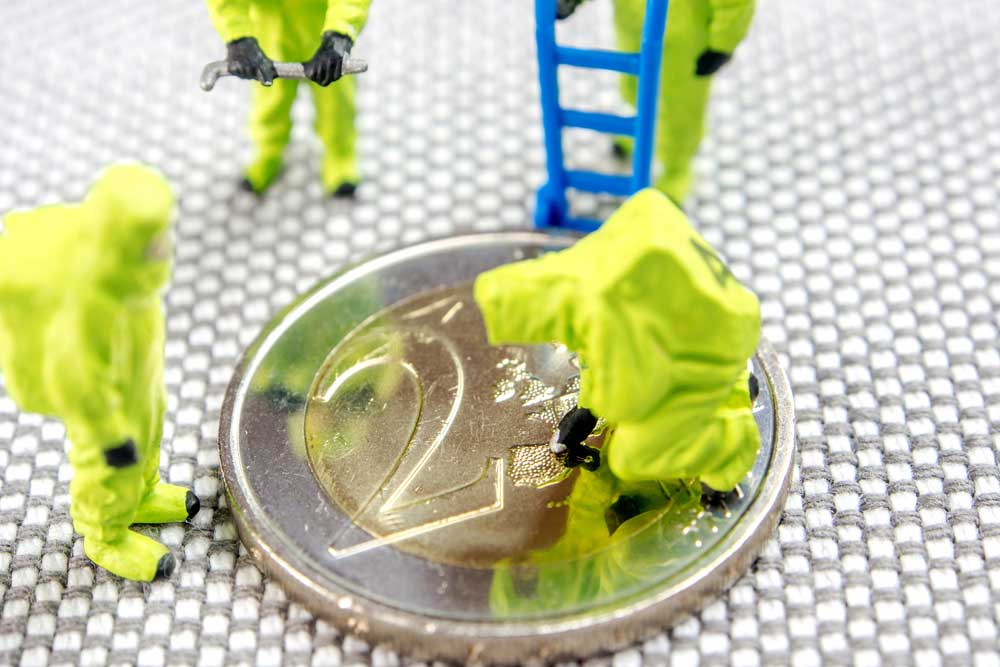To clean or not to clean old coins? This, without a doubt, is one of the biggest controversies in the world of coin collectors or, better said, of numismatics.
Generally speaking, experts in the field do not recommend cleaning old coins. This is because any type of cleaning can compromise the metal used in manufacturing, not to mention that you run a serious risk of depreciating the coins in your collection.
Yes that's right! In land of old coins, dirt is queen. This means that certain marks, stains and dirt that are on the coins have great historical value for those who collect them and, for this reason, they must be kept there.
Otherwise, it may lose market value.
But in some specific cases, old coins may receive special treatment to help with conservation and that is what we are going to talk about today.
Settle in there because we have a lot of things to talk about.
How to clean old coins: what not to do

Before talking about what you should do to clean your coins it is very important to first mention what not to do, since in this case the risks are much greater. Follow:
- Patina patches in shades of brown, green or blue must not be removed from the coins. This is because they confirm the currency's antiquity and increase its value in the collectibles market.
- Do not use abrasive products, nor products to polish and shine.
- Under no circumstances use products and materials that can scratch coins, such as steel sponges and wall plugs, for example. Not even cotton is advisable for coin cleaning, as the fibers of the material can cause scratches on the coin.
- When handling coins always use cotton gloves to prevent sweat from your hand and other residues from causing oxidation on the coin. And when cleaning, make sure your hands are clean.
- Always try to know the material with which your coin was made, since each metal requires a different form of cleaning and conservation.
- Clean the lowest value coins first, so you don't risk damaging the one that is the most emblematic of your collection right away.
- If you have iron coins, don't try to clean them at all. The chance of damaging them forever is much greater than if you leave them as they are, even if they have rust and rust spots. And never, under any circumstances, put iron coins in contact with water.
General tips for cleaning old coins

Although it is not advisable to clean coins, you may need to perform this process if a coin in your collection is in one of the following situations:
- It is silver and is oxidizing;
- It has dirt accumulated during the circulation and handling process;
- Dirt is not impregnated in the coin and can be removed superficially;
- She was found buried and is excessively dirty with soil and other waste.
In the cases mentioned above it is possible to perform the cleaning, but always taking into account that it is essential to be extremely careful not to damage the part.
In general, always try to use neutral products and never expose coins to high temperatures. It is also recommended to use distilled water to clean the coins.
See below for step by step how to clean each type of currency.
How to Clean Old Gold Coins
Gold is the most noble material used in the manufacture of coins and also the most valued by collectors.
Gold coins, when necessary, should be cleaned with warm distilled water and a small amount of mild soap. To remove dirt, use your fingertips in light, smooth and circular movements.
Rinse well using distilled water. Then dry the coin carefully so that it does not scratch.
Use a soft paper towel over a fluffy towel and press the coin against the paper so that the towel absorbs all moisture, including the most difficult parts. Remember to wear gloves during this process.
Gold coins must be kept well to avoid friction and scratches.
How to Clean Old Silver Coins
First of all, forget the idea of using specific products to clean silver, even if your coin is made from that material. This is because these products usually offer shine to silver pieces, except that in the case of coins this shine is considered artificial and causes them to lose value.
The best way to clean silver coins is to use a small amount of distilled water and mild soap again. Wash in a circular, smooth motion with your fingertips.
Then rinse and dry thoroughly. To dry, rub the coin on absorbent paper.
Some silver coin cleanings include the use of citric acid, especially if the coin is showing strong signs of oxidation.
But be very careful with the source of the citric acid and the amount. The recommended is the use of powdered citric acid used by confectioners. Do not use lemon squeezed in water because you simply cannot calculate the amount of acid in the solution.
How to clean old copper, bronze and brass coins
Copper, bronze and brass coins should not be cleaned with water, as they can suffer from oxidation and rust.
The tip is to dry clean using a brush to clean brass. Remembering that in this case, cleaning should only be to remove surface dirt.
Don't even think about removing the patina from the coin, otherwise it will lose its value.
To finish cleaning copper, bronze and brass coins use graphite powder. With the help of a brush with soft bristles, pass all the powder over the surface of the coin. This process helps to cover the porosity of metals and prevent oxidation in the future.
How to clean old coins from other metals
Coins made of nickel, cupronickel and alpaca should be cleaned in warm water and with a little bit of neutral soap. Wash them gently and in a circular motion, then rinse well.
Dry the coin with an absorbent paper.
It is also possible to clean old nickel coins and other materials with a mixture of water and citric acid. In that case, just dip it in the container with the solution and wait for about 20 minutes.
Just be careful not to overdo the amount of citric acid and, instead of cleaning, end up deteriorating your coins.
Care in coin conservation and storage

More than knowing how to clean the coins it is essential that you know the correct way to store them, since conservation is much more important than the cleaning process.
So, write down these more tips to take care of your old coins with all care:
- Always, always, always wear gloves to handle the coins and avoid picking them up by the disc, prefer, on the contrary, to hold them by the edges.
- Avoid at all costs that the coins come into contact with instruments and sharp objects that can cause scratches on the surface.
- If you need to transport coins from one place to another, do so by protecting them as much as possible.
- Avoid storing coins of different metals together. The contact between the different materials can accelerate the oxidation process, damaging the less noble metal and dirtying the more noble metal.
- Coins must be kept away from moisture and, if possible, also away from contact with air and in an environment that does not suffer from sudden changes in temperature. For this, there are specific containers, such as drawers, for example. Another very common way of storing coins is in paper envelopes or in plastic sheets.
- Copper, silver, bronze and iron coins are the most delicate and sensitive to the environment. That is why taking care of them is not enough. Gold coins are the most resistant, but that is not why they should be stored anyway.
In short: old coins should be cleaned only in specific situations. When in doubt, take the coin for the evaluation of a professional.



